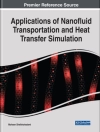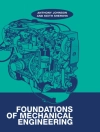The numerical simulation of combustion processes in internal combustion engines, including also the formation of pollutants, has become increasingly important in the recent years, and today the simulation of those processes has already become an indispensable tool when – veloping new combustion concepts. While pure thermodynamic models are well-established tools that are in use for the simulation of the transient behavior of complex systems for a long time, the phenomenological models have become more important in the recent years and have also been implemented in these simulation programs. In contrast to this, the thr- dimensional simulation of in-cylinder combustion, i. e. the detailed, integrated and continuous simulation of the process chain injection, mixture formation, ignition, heat release due to combustion and formation of pollutants, has been significantly improved, but there is still a number of challenging problems to solve, regarding for example the exact description of s- processes like the structure of turbulence during combustion as well as the appropriate choice of the numerical grid. While chapter 2 includes a short introduction of functionality and operating modes of internal combustion engines, the basics of kinetic reactions are presented in chapter 3. In chapter 4 the physical and chemical processes taking place in the combustion chamber are described. Ch- ter 5 is about phenomenological multi-zone models, and in chapter 6 the formation of poll- ants is described.
Cuprins
into the functioning of internal combustion engines.- Foundations of reaction kinetics.- Engine combustion.- Phenomenological combustion models.- Pollutant formation.- Calculation of the real working process.- Total process analysis.- Fluid mechanical simulation.
Despre autor
Professor Dr.-Ing. habil. Günter Peter Merker received is Dr.-Ing. for his thesis on Thermodynamics in Munich, where he received the venia legendi as well. Since 1994 he is Professor for Applied Thermodynamics at Hannover University, Faculty of Mechanical Engineering, and renown for his scientific work for major public and industrial research institutions.
Professor Dr.-Ing.habil Christian Schwarz studied Mechanical Engineering in Munich. Since 1997 Professor Schwarz is employed by BMW AG.
Dr.-Ing. habil Gunnar Stiesch studied Mechanical Engineering at Hannover University and University of Wisconsin-Madison. In the year 2000 he was research fellow at the Engine Research Center at the University of Wisconsin-Madison. Since 2003 Dr. Stiesch is a researcher for MTU Friedrichshafen Gmb H.
Dr. rer. nat. Frank Otto studied Physics Heidelberg University, where he finished his Ph D-Thesis 1991. Since 2002 Dr. Otto works as a Projectmanager for Daimler Chrysler AG.












